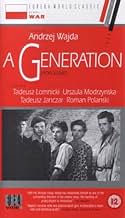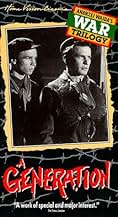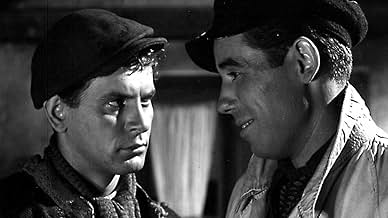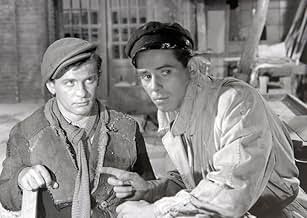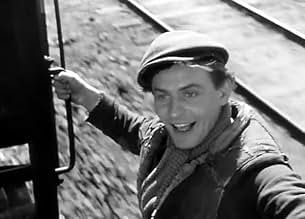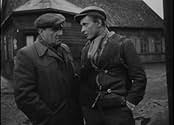Ajouter une intrigue dans votre langueStory of youth during the German occupation of Poland in World War II who come to adulthood through love and adversity.Story of youth during the German occupation of Poland in World War II who come to adulthood through love and adversity.Story of youth during the German occupation of Poland in World War II who come to adulthood through love and adversity.
- Réalisation
- Scénario
- Casting principal
Avis à la une
What is so striking to me about this film is the irony of history: I believe that not only we (living in the 21st century) are able to understand this now, but that viewers of this film in 1955 Poland would have recognized as well. By 1955 Poland was stuck behind the Iron Curtain, held hostage by communist rule. Not unlike the Czechs (and their great communist satires), all art and media was mediated by the communist government. To see these young Poles attempt to improve their country by overthrowing the Nazi party with communism is ironic and ultimately tragic.
Although this film may appear to some as communist propaganda, I see this film as a tongue-in-cheek allegory about the meaninglessness of war, and the complication of those attempting to end the war with another flawed ideology. Not a great film, but certainly interesting, especially when considering the historical context in which it was made.
-
Le saviez-vous
- AnecdotesFirst feature film directed by Andrzej Wajda.
- Citations
[first lines]
Stach Mazur: I was born here in the slums, on the outskirts of Warsaw. I grew up in poverty. Here I made my first friends and had my first lessons. I often had it rough as a kid, because I couldn't tell my friends from my enemies. I was too trusting and relied on my swift legs and strong fists. My Ma kept me on a short leash and tried to push me off to work. But I took it as typical woman's nagging, preferring to play knives with my buddies instead.
- ConnexionsFeatured in Zbyszek (1969)
- Bandes originalesStändchen
Composed by Franz Schubert
Meilleurs choix
- How long is A Generation?Alimenté par Alexa
Détails
Box-office
- Montant brut mondial
- 24 114 $US
- Durée
- 1h 27min(87 min)
- Couleur
- Mixage
- Rapport de forme
- 1.37 : 1



